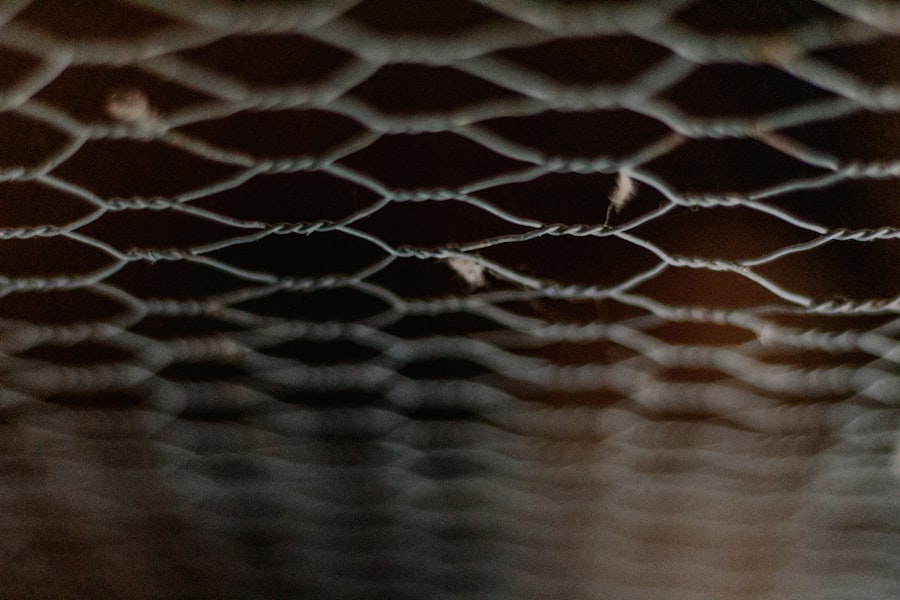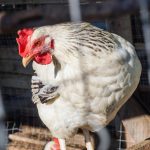Chickens are social creatures with a complex social hierarchy within their flock. Understanding their behavior is essential for creating a safe and healthy environment. They communicate through various vocalizations, body language, and a pecking order, which establishes each chicken’s place and status in the group.
Observing and understanding this hierarchy is crucial to prevent aggressive behavior and bullying. Chickens have natural instincts for foraging, dust bathing, and roosting. Providing opportunities for these behaviors is vital for their well-being.
By comprehending chicken behavior, owners can create an environment that meets their social and physical needs, resulting in a happier and healthier flock. Specific behaviors indicate a chicken’s well-being or distress. Content and healthy chickens engage in foraging, dust bathing, and sunbathing.
Conversely, distressed chickens may exhibit feather pecking, aggression, or lethargy. Recognizing these behaviors allows owners to identify and address issues promptly. By observing and understanding chicken behavior, caretakers can create an environment that promotes natural instincts and social structure, fostering a harmonious and thriving flock.
This knowledge is crucial for maintaining the overall health and welfare of chickens in both small backyard coops and larger farming operations.
Table of Contents
- 1 Providing Adequate Nutrition and Space
- 2 Introducing Distractions and Enrichment
- 3 Implementing Anti-Pecking Measures
- 4 Monitoring and Addressing Aggressive Behavior
- 5 Seeking Professional Advice
- 6 Creating a Safe and Healthy Environment for Chickens
- 7 FAQs
- 7.1 What are some common things that chickens tend to peck at?
- 7.2 Why do chickens peck at things?
- 7.3 How can I prevent chickens from pecking at things?
- 7.4 Are there any specific breeds of chickens that are less prone to pecking?
- 7.5 What are some signs that my chickens may be pecking at something excessively?
Key Takeaways
- Chickens have complex social behaviors and hierarchies, and understanding their behavior is crucial for their well-being.
- Providing adequate nutrition and space is essential for the health and happiness of chickens.
- Introducing distractions and enrichment activities can help prevent boredom and reduce aggressive behavior in chickens.
- Implementing anti-pecking measures, such as beak trimming or using anti-pecking sprays, can help prevent aggressive behavior among chickens.
- Monitoring and addressing aggressive behavior in chickens is important for creating a safe and healthy environment for them.
- Seeking professional advice from a veterinarian or animal behaviorist can provide valuable insights and solutions for managing chicken behavior.
- Creating a safe and healthy environment for chickens requires a combination of understanding their behavior, providing proper care, and addressing any aggressive behavior that may arise.
Providing Adequate Nutrition and Space
Nutrition and Hydration
A balanced diet is vital for the health of chickens, and it should include a mix of grains, protein, vitamins, and minerals. Fresh water should always be available to ensure they stay hydrated and healthy.
Space and Movement
Chickens require adequate space to move around, forage, and engage in natural behaviors. Overcrowding can lead to stress, aggression, and pecking issues within the flock. Providing enough space both inside the coop and in the outdoor run is important for the physical and mental well-being of the chickens.
Housing and Environment
In addition to nutrition and space, providing appropriate housing is also important for the well-being of chickens. The coop should be well-ventilated, predator-proof, and provide roosting space for the chickens. Nesting boxes should be provided for egg-laying hens to ensure they have a comfortable and safe place to lay their eggs. The outdoor run should be secure and provide access to fresh grass, dirt for dust bathing, and areas for foraging. By providing adequate nutrition, space, and housing, you can create an environment that supports the physical and mental well-being of your chickens.
Introducing Distractions and Enrichment

Introducing distractions and enrichment activities can help prevent boredom and reduce aggressive behavior within the flock. Chickens are curious animals that enjoy exploring their environment and engaging in various activities. Providing environmental enrichment such as hanging treats, perches, or toys can stimulate their natural behaviors and keep them mentally engaged.
Additionally, allowing them access to a variety of natural materials such as branches, logs, or straw bales can provide opportunities for foraging and exploration. By introducing distractions and enrichment activities, you can create a stimulating environment that promotes positive behaviors and reduces stress within the flock. Another way to provide enrichment for chickens is by allowing them access to a diverse outdoor environment.
Allowing chickens to free-range in a safe and secure area can provide them with opportunities for natural behaviors such as foraging, dust bathing, and exploring. Access to fresh grass, insects, and other natural elements can keep them mentally stimulated and physically active. Providing a diverse outdoor environment can also reduce aggression within the flock by giving chickens space to move around and engage in natural behaviors.
By introducing distractions and enrichment activities, you can create a stimulating environment that promotes positive behaviors and reduces stress within the flock.
Implementing Anti-Pecking Measures
Pecking issues within a flock can lead to serious injuries and even death if not addressed promptly. Implementing anti-pecking measures is crucial in preventing aggressive behavior within the flock. One effective measure is to provide enough space within the coop and outdoor run to reduce overcrowding and competition for resources.
Additionally, providing multiple feeding and watering stations can help prevent bullying over food and water. Another measure is to introduce distractions such as hanging treats or toys to redirect their attention away from pecking at each other. By implementing anti-pecking measures, you can create an environment that reduces aggression within the flock and promotes harmonious interactions.
Another effective anti-pecking measure is to address any underlying health issues that may be causing aggressive behavior within the flock. Parasites, nutritional deficiencies, or injuries can lead to stress and aggression among chickens. Regular health checks and providing a balanced diet can help prevent these issues from arising.
Additionally, providing access to dust bathing areas can help chickens maintain their hygiene and reduce stress, which can in turn reduce aggressive behavior within the flock. By implementing anti-pecking measures and addressing any underlying health issues, you can create an environment that promotes positive interactions and reduces aggression within the flock.
Monitoring and Addressing Aggressive Behavior
Monitoring aggressive behavior within the flock is crucial in maintaining a safe and healthy environment for chickens. Aggressive behavior can manifest in various ways such as pecking, bullying, or feather plucking. It is important to observe the flock regularly to identify any signs of aggression and address them promptly.
Separating aggressive chickens from the rest of the flock temporarily can help reduce stress and prevent further injuries. Additionally, providing distractions such as hanging treats or toys can redirect their attention away from aggressive behaviors. By monitoring and addressing aggressive behavior promptly, you can create a safe and harmonious environment for your chickens.
Another way to address aggressive behavior within the flock is by introducing new chickens gradually. Introducing new chickens too quickly can disrupt the established pecking order and lead to aggression within the flock. Providing a separate area for new chickens to acclimate to the existing flock before fully integrating them can help reduce stress and aggression.
Additionally, providing enough space and resources for all chickens within the flock can help prevent competition and reduce aggressive behavior. By monitoring aggressive behavior within the flock and introducing new chickens gradually, you can create a harmonious environment that promotes positive interactions among the chickens.
Seeking Professional Advice

Identifying Underlying Health Issues
A veterinarian can conduct health checks to identify any underlying health issues that may be causing stress or aggression within the flock. This is an essential step in addressing behavioral issues, as health problems can often be a root cause of aggressive behavior.
Modifying the Environment and Management Practices
An animal behaviorist can provide guidance on how to modify the environment or management practices to promote positive behaviors among the chickens. By seeking professional advice, you can address behavioral issues within the flock effectively and create a safe and healthy environment for your chickens.
Introducing New Chickens and Managing Aggressive Behavior
Another reason to seek professional advice is if you are unsure about how to introduce new chickens to an existing flock or how to manage aggressive behavior among them. A professional can provide guidance on how to introduce new chickens gradually and how to manage their interactions with the existing flock. Additionally, they can provide recommendations on environmental enrichment activities that can reduce stress and aggression within the flock. By seeking professional advice, you can gain valuable insights into managing behavioral issues within your flock and creating a harmonious environment for your chickens.
Creating a Safe and Healthy Environment for Chickens
In conclusion, understanding the behavior of chickens is crucial in creating a safe and healthy environment for them. By observing their social structure, natural instincts, and behaviors, you can create an environment that meets their physical and mental needs. Providing adequate nutrition, space, housing, distractions, and enrichment activities is essential in promoting positive behaviors and reducing stress within the flock.
Implementing anti-pecking measures such as providing enough space, addressing underlying health issues, and introducing distractions can help prevent aggressive behavior among chickens. Monitoring aggressive behavior within the flock and seeking professional advice when necessary are important steps in maintaining a harmonious environment for chickens. By taking these measures, you can create a safe and healthy environment that promotes positive interactions among your flock of chickens.
If you’re looking for more tips on keeping chickens, check out this article on how to convert a shed into a chicken coop. It offers valuable insights on creating a safe and comfortable space for your feathered friends.
FAQs
What are some common things that chickens tend to peck at?
Chickens are known to peck at various objects such as feeders, waterers, other chickens, their own feathers, and even plants in the coop or run.
Why do chickens peck at things?
Chickens peck at things as a natural behavior to explore their environment, establish a pecking order, and forage for food. However, excessive pecking can be a sign of stress, boredom, or nutritional deficiencies.
How can I prevent chickens from pecking at things?
To prevent chickens from pecking at things, provide them with enough space, enrichment activities, and a balanced diet. Additionally, using deterrents such as bitter-tasting sprays or covering objects with netting can help discourage pecking behavior.
Are there any specific breeds of chickens that are less prone to pecking?
Some chicken breeds are known to be less prone to pecking, such as the Orpington, Wyandotte, and Silkie. These breeds are generally more docile and less likely to engage in aggressive pecking behavior.
What are some signs that my chickens may be pecking at something excessively?
Signs that your chickens may be pecking at something excessively include visible injuries, feather loss, stressed behavior, and damage to coop or run structures. It’s important to address excessive pecking behavior to ensure the well-being of your chickens.
Meet Walter, the feathered-friend fanatic of Florida! Nestled in the sunshine state, Walter struts through life with his feathered companions, clucking his way to happiness. With a coop that’s fancier than a five-star hotel, he’s the Don Juan of the chicken world. When he’s not teaching his hens to do the cha-cha, you’ll find him in a heated debate with his prized rooster, Sir Clucks-a-Lot. Walter’s poultry passion is no yolk; he’s the sunny-side-up guy you never knew you needed in your flock of friends!







